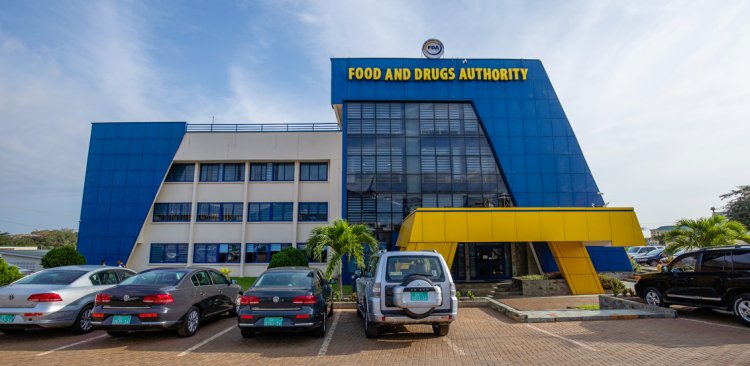FDA Allays Fear On Antimalaria and Antiretroviral Drugs
The Food and Drugs Authority (FDA) with support from the government is working with neighbouring countries through the West Africa Health Organization (WAHO), WHO and the International Police (Interpol) in this regard.

Substandard and fake medicines have been a bane of the developing world and Ghana has not been an exception.
Globally, the World Health Organisation asserts that 1 in 10 medical products in low/middle-income countries are substandard/fake and is considered as a multimillion-dollar business that claims the lives of millions around the world.
In 2009, a total of about 39.6% of antimalaria medicines in circulation in the Ghanaian market were found by the Food Drug Authority to be substandard or fake.
To immediately address this problem, the FDA mounted an intensive and targeted public education and shored up its post-market surveillance activities nationwide.
Over time, these efforts have resulted in a significant decline in fake antimalaria medicines on the Ghanaian market as evidenced by a study conducted with the support of the USAID/USP, which showed a sharp reduction from 39.9% in 2009 to about 1.4% in 2018.
In the case of antibiotics, about 14% were found to be substandard in 2019 largely due to the degradation of key components of the medicines as a result of poor storage and transportation.
It is, however, instructive to note that, anti-malarial and antiretroviral medicines in Ghana had a 100% pass with respect to quality in 2019, a no mean feat that must be acknowledged by all.
To consolidate the gains so far made, the FDA has continued to introduce several risk-based approaches and interventions to combat the menace of substandard and fake medicines.
For instance, the extensive processes involved in medical product registration namely -laboratory analysis of samples, inspection and licensing of manufacturing facilities have had far-reaching effects.
To control the influx of substandard and fake medicines coming into the country by unauthorized persons, surveillance at Ghana’s ports of entry has been heightened, leading to seizures and the destruction of many such products.
The FDA with support from the government is working with neighbouring countries through the West Africa Health Organization (WAHO), WHO and the International Police (Interpol) in this regard.
The Authority has also constituted a 12-member Inter-Agency Committee for substandard/falsified medical products to amongst others, provide strategies and recommendations on combating the menace of substandard/falsified medical products, including developing and maintaining a Watch List of medical products considered to be most susceptible to counterfeiting.
The Committee has representatives from the Security Services, the Judiciary Service and other allied health agencies.
Furthermore, random product quality monitoring and inspections (sampling and testing) are conducted periodically all in the interest of safeguarding public health and safety, an activity that has earned the FDA the designation of a world-class Pharmacovigilance, by the Africa Union Development Agency-NEPAD as a Regional Africa Centre of Excellence for Africa Medicines Regulatory Harmonization Organisation (AMRHO).
In view of the above, the FDA has assured the public that the quality, safety and efficacy of medicines in circulation in Ghana is closely monitored on a daily basis and therefore there is no need for panic.
The public is also encouraged to disregard unsubstantiated publications that may seek to erode public confidence in Ghana’s health system.
Freeman Kroyekpor, Accra


 Joana Somiah
Joana Somiah 


































